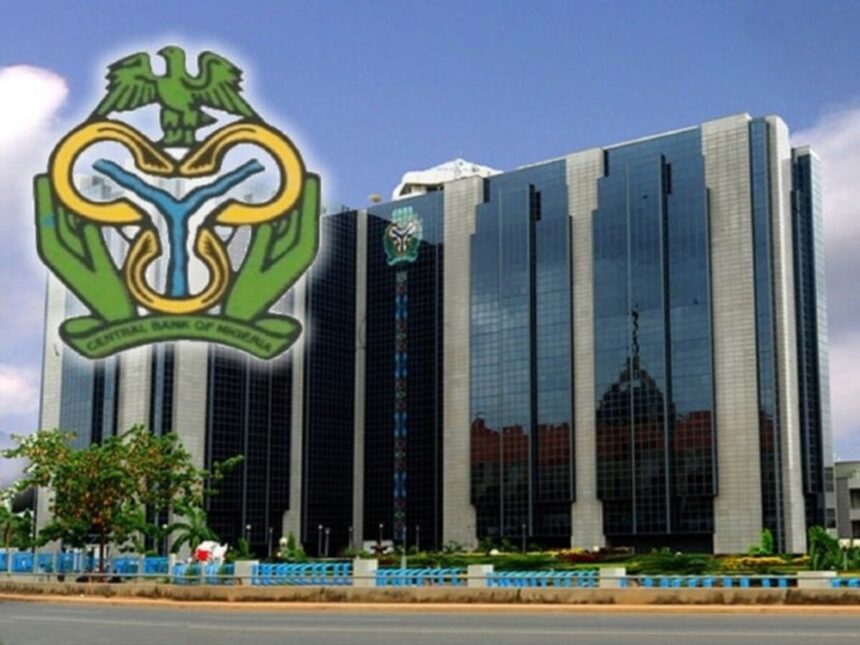•Shareholders push back
The Central Bank of Nigeria’s (CBN) recent decision to temporarily suspend dividend payments by banks has triggered strong and mixed reactions across the financial ecosystem.
While financial analysts described it as a prudent move to preserve capital and protect the banking sector’s integrity, shareholders and some market participants are expressing deep concern over what they considered an overreach that may hurt investor confidence and destabilize the capital market.
In a circular dated June 13, 2025, and signed by the Director of Banking Supervision, Dr. Olubukola Akinwunmi, the apex bank directed all banks operating under its forbearance supervision to immediately suspend the payment of dividends to shareholders, bonuses to directors and senior management, and any new offshore investments. The CBN said the measures were part of its broader effort to strengthen the resilience and stability of Nigerian banks amid ongoing recapitalization efforts.
The circular made it clear that these restrictions will remain until the affected banks fully exit regulatory forbearance and meet capital adequacy and loan provisioning standards verified independently by the CBN.
Adetilewa Adebajo of CFG Advisory supported the CBN’s action, stating that it targets the root cause of fragility in the sector—non-performing loans (NPLs). “This move ensures that banks use fresh capital to clean up their balance sheets, not to pay dividends. It’s a sensible step toward long-term financial health,” he noted. Adebajo emphasised that while the decision may impact short-term investor returns, it could ultimately support better capital retention and stronger stock values.
Several investment analysts argued that the CBN’s move, though perhaps logical on paper, injects avoidable uncertainty into the market. A head of research at a major stockbroking firm on Broad Street remarked, “In a free-market system, investors expect to be rewarded for risk. If a bank declares profits, dividends should follow—unless there’s fraud or insolvency. Arbitrary regulatory actions shake investor trust.”
Retail shareholders, especially minority investors, expressed anger and frustration. They argue that denying dividends on already-declared profits tampers with expected returns, creating valuation and yield mismatches for their investments. “We’ve taken on risk, and now we’re being told we may not see our returns—not because the bank failed, but because of a regulator’s decision,” one investor lamented.
Banks, for their part, have remained largely silent, with insiders admitting that any public disagreement with the CBN could be detrimental to both their regulatory standing and reputation. Still, behind the scenes, concerns are rising that the dividend freeze could hurt efforts to raise new capital, particularly as banks scramble to meet new capital thresholds introduced in 2024. Investors may now demand higher future payouts or risk premiums to compensate for the regulatory uncertainty.
The timing of the policy also raised additional eyebrows. Analysts point out that such a sweeping decision—especially one likely to impact stock valuations and investor sentiment—should have been made in consultation with the Securities and Exchange Commission (SEC), given its implications for the capital markets. As of this report, it remains unclear whether the SEC or any of the affected banks were consulted before the announcement.
“Money market policy is beginning to blur into capital market regulation,” observed an analyst at Proshare Economic and Market Intelligence. “It creates a risk of overregulation and conflicting mandates.”
As banks recapitalise, earnings per share (EPS) are expected to decline due to increased share capital.
The suspension of dividends could exacerbate this, possibly pushing share prices lower in the short term. Yet, analysts believe the CBN is deliberately discouraging the use of dividend payments to service debts tied to past capital raises, ensuring that new capital goes directly into balance sheet repair and provisioning for NPLs.
Still, as one bank executive questioned, “If dividends declared were based on profits made under forbearance, shouldn’t the CBN have set clearer guidelines on exiting forbearance first? Investors now face uncertainty on whether and when returns will materialize.”
The CBN has said the policy affects only banks under regulatory forbearance. However, critics argue that most Tier-1 banks—including those in the FUGAZE group (FirstBank, UBA, GTBank, Access, Zenith, and Ecobank)—have been operating under some form of forbearance since the COVID-19 pandemic. The opacity of these arrangements leaves investors in the dark about which banks are impacted and to what extent, further clouding market sentiment.
Experts suggest a more tailored approach might have been better—working with individual banks to develop phased recovery and recapitalization plans, while maintaining investor confidence and protecting minority shareholders’ interests.
The suspension of foreign expansion adds another layer of complexity. Nigerian banks have been expanding across Africa in pursuit of diversified revenue and forex streams—aligning with national goals under the African Continental Free Trade Agreement (AfCFTA). Critics say restricting this growth due to unresolved domestic issues sends mixed signals.
While the CBN may be prioritizing prudence, banks argue that their continental ventures reduce risk concentration and improve global competitiveness. “Why approve cross-border licenses only to halt execution at the point of expansion?” asked one banking strategist.
The Central Bank of Nigeria has won praise in recent years for stabilizing inflation and exchange rates. However, this latest policy, while aiming to enforce discipline, may be perceived as undermining shareholder rights and weakening the country’s appeal to both local and foreign investors. By not disclosing the extent of forbearance across institutions, the policy could inadvertently penalize investor trust and dampen participation in the banks’ upcoming capital raises.
While the intent may be sound, financial experts say the execution must be refined—transparent communication, stakeholder consultation, and phased application could help preserve the delicate balance between regulatory control and market confidence.
READ ALSO: As banks align with CBN monetary policies for economic recovery






